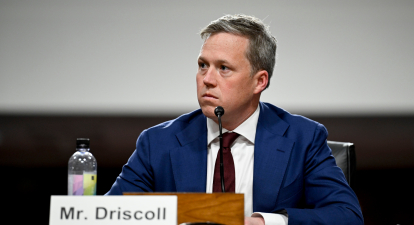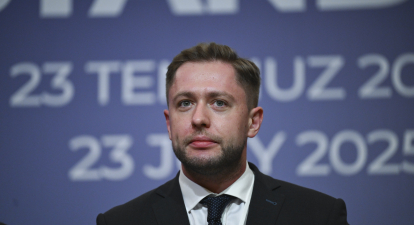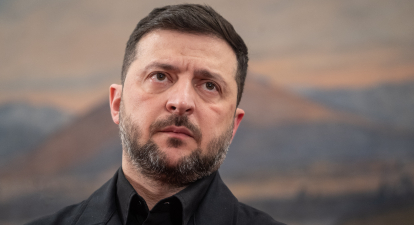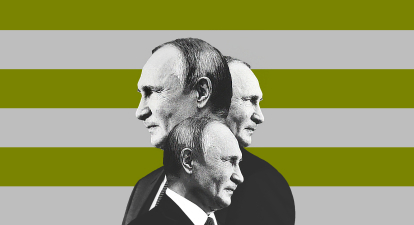
Vladimir Putin seeks to weaken NATO unity, complicate aid to Ukraine and discredit liberal democracies for his strategic goals, writes The Economist. Photo Collage Anna Nakonechna
Russian cyberattacks and activities on the territory of NATO member states are testing the alliance's resolve. But there are three strategic goals behind these attempts. Forbes Ukraine retells the main points from The Economist
Buy an annual subscription to six Forbes Ukraine magazines for the price of four issues. If you value the quality, depth, and power of real-world experience, this subscription is for you.
Drones over Poland, MiGs in the skies of Estonia, damaged cables in the Baltic Sea and cyberattacks on airports. All these actions individually are not a reason for war, but together they form a dangerous strategy for Russia. The President of the aggressor state Vladimir Putin is waging a “gray” campaign against NATO – cheap, denied and carefully dosed to destabilize Europe without open conflict, writes The Economist.
Putin is not only interested in doing harm. He pursues three strategic goals.

Popular Category Money Date October 01 A trend among retailers. Rozetka is the fourth retail chain to launch its own payment cards. How can the company make money from this?
Putin’s first goal is to weaken NATO unity. The hybrid warfare campaign is intended to make Europeans doubt each other and, most importantly, their loyalty to the United States.
If the reliability
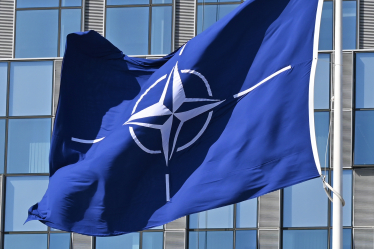
One of Putin's goals remains to make Europeans doubt each other and the US's loyalty. Photo: Getty Images
Countering Putin
Ukraine's allies need to publicly and promptly expose every attack and sabotage with evidence. Ignoring “small” cases or waiting silently allows the “gray zone” of hybrid warfare to expand.
Therefore, cyberattacks, infrastructure sabotage, or election interference must be documented immediately to deny Russia any chance of denying them. This will show Western voters that they are the target of a disinformation campaign.
NATO and the EU must also increase their resilience.
Defense in the “gray zone” includes cable and pipeline repair crews, cyber-response teams, and strengthened election commissions. It also requires the use of economic and cyber countermeasures, from sanctions against pipeline companies to mobile interceptors to destroy drones.
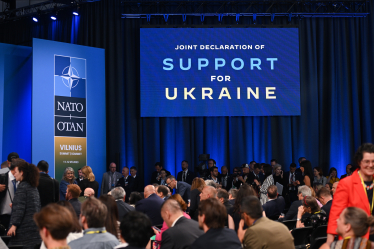
The Kremlin's opposition could manifest itself in using frozen Russian assets to finance Ukraine's defense, writes The Economist. Photo: Getty Images
It is time to use frozen Russian assets to finance Ukraine’s defense, which is also Europe’s defense, writes The Economist. And yes, that defense could mean shooting down a military plane that poses a threat to life.
Refusing to take decisive action under the pretext of “escalation” will only encourage further Russian action. All this is difficult to do even with a reliable American guarantee. And even more difficult when US President Donald Trump presents himself as an unreliable member of the alliance, The Economist concludes.
Materials on the topic

Category World Date September 24 “Putin is acting according to Lenin's rule.” Russia is increasing pressure on Europe with provocations in Poland and Estonia. What are seven other pain points on the NATO map?

Category War Date September 17 “Trump's Putin Strategy Has Failed.” How to End the War? Forbes Asked Representatives of Western Political Elites About This at the YES Conference

Category War Date August 20 “Trump wants a lasting peace, but he made a mistake.” Where are the peace talks leading Ukraine and what security guarantees are real? Interview with former US Ambassador John Herbst

Category War Date August 19 An unexpected stance on security and an ultimatum on negotiations with Russia. Key takeaways from the White House meeting between Zelensky, Trump and EU leaders from Politico

Category World Date August 18 No deal, but the world is different. Three key changes Trump's meeting with Putin brought to the Russia-Ukraine war

Category World Date September 25 A chance for pro-Russian politicians. The party of the Moldovan president risks losing its majority in parliament in the upcoming elections. Four scenarios and three risks for Ukraine

Category World Date September 24 “Time for Ukraine to Act.” Trump has changed his rhetoric regarding the war in Ukraine. Why is such a U-turn dangerous? Analysis by NYT and Reuters

Category World Date September 10 “Russia feeds on weakness.” What are the consequences of the attack of the Russian “Shaheeds” on Poland? Polish military analyst Konrad Muzyka tells
